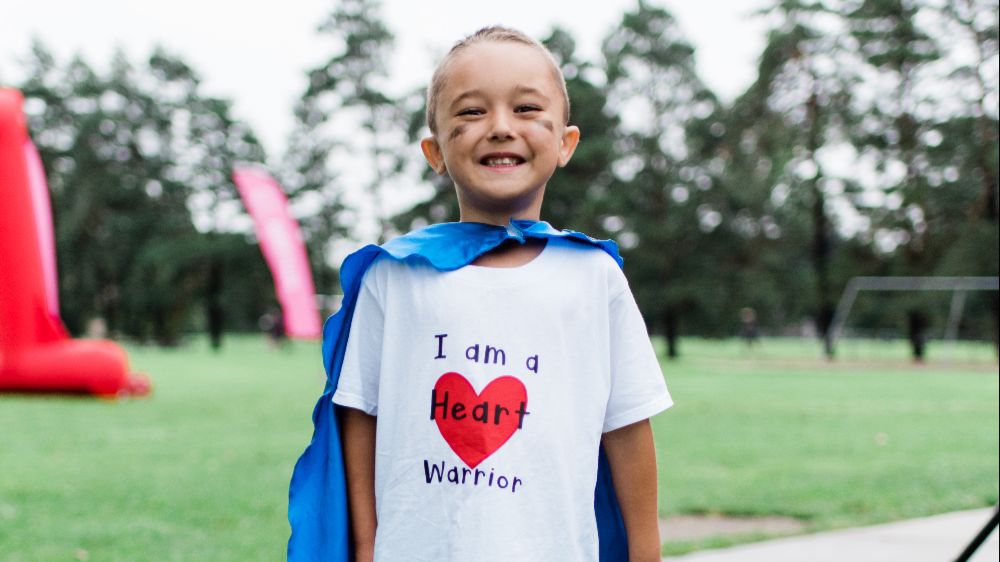Mick Landauer: My Heart Story, Part II
By the time he was 16 years old, Mick Landauer had gone through two major heart surgeries, but he didn’t let that stop him from graduating from high school when he was 17 and taking a road trip to Colorado with a friend.
“Heart surgeries were not an everyday thing,” Mick said, “but Dr. Miller—the only doctor we had really known and worked with right from the start—told my parents I would ‘know’ if something was wrong with my heart based on how I felt.”
That fall, Mick went to college at the University of Iowa majored in business. Determined to pay his own way through college, he took a job on the production line at International Harvester, a farm machinery company, and made enough by working summers there to cover his tuition.
As early as his first semester at Iowa, Mick began to “know” something was wrong.
“I felt very weak going to classes one day and had to sit down and rest on the way there,” shares Mick. “I ended up going to student health and learned my heart was beating 300 beats per minute! I was sent to the hospital, so I walked to the emergency room (which is actually quite far from student health) and there was a team waiting for me.”
His diagnosis? A significant case of atrial fibrillation. “I had to look it up,” says Mick. “It’s essentially having a really fast heartbeat, but at the time I didn’t know what that was.”
Doctors calmed Mick down, promised permission to miss classes, made him call his parents, and gave him medication to slow down his heartrate.
“This happened in mid-September,” he explains. “After a month, my heart was beating 40 beats per minute, which I wasn’t used to at all, so they tried a new combination of drugs. This went on throughout the semester.”
At semester break, Mick visited Dr. Miller in Chicago. “He said medication is to make you better, not keep you better, and he told me to get off the pills,” Mick recalls. “Except for taking coumadin, I felt fine and was medication free until the age of 45.”
Mick maintained regular appointments with Dr. Miller through his college years. But after graduating from Iowa, Mick called for an appointment and learned Dr. Miller had retired and left no forwarding information.
“He was the one person who knew all about my story, so that was the hardest part,” Mick recalls. “I was simply told to look for another doctor.”
But life was busy.
“I ran my own business for 32 years—as a Mieneke Muffler franchise for 15 years and then as Bi-State Muffler & Brake (now Bi-State Auto Service Center) for 17 more years,” explains Mick.
For many years his business was running smoothly, and for quite some time, so was his heart.
While this is absolutely NOT what he would recommend to anyone now that he has fully realized the importance of regular check-ups for anyone with a CHD, Mick waited more than a decade before he looked for another doctor. At age 35, he returned to his great uncle in Chicago for advice.
“He gave me three names and I chose Dr. Marla Mendelson at Northwestern Memorial Hospital,” says Mick. “She’s been with me ever since.”
With Dr. Mendelson, Mick resumed regular appointments to monitor his heart. When he was 45, tests suggested the need for surgery.
The plan was for Dr. David Wax, a surgeon at Children’s Memorial, to place stents in Mick’s right pulmonary artery. However, Dr. Wax stopped mid-surgery when he realized the artery was too clogged to make stents work. Suspecting there were other areas of concern, he asked Mick’s parents for permission to examine his heart more extensively to see what he could find.
“They brought me out of surgery and I knew my parents and Dr. Mendelson were there, but I couldn’t see them,” he says. “I was blind.”
About 90 minutes later, Mick’s sight returned.
“They must have hit a nerve or something is all I can figure out,” he shares. “Everybody had been so sober, but I was thinking, ‘If I’m blind, I’m blind. It’s part of life.”
Not long after that, Mick required open heart surgery—this one both more extensive and invasive than the attempted stent procedure. Performing his third heart surgery was Dr. Constantine Mavroudis from Children’s Memorial.
The most significant part of the surgery involved reversing the Glenn procedure from his second surgery, as his right atrium had become large enough to re-route blood flow through the heart. Dr. Mavroudis also cleaned out his right pulmonary artery, banded his left pulmonary artery to keep it from getting larger, gave him a new pulmonary valve, and—to Mick’s surprise—inserted a pacemaker…in his belly!
“That’s where they put it when they do kids, and I was done at a children’s hospital!” he laughs. “My pacemaker is now in the top of my chest, and it’s the size of a quarter!”
Mick later learned that during the open heart surgery with Dr. Mavroudis, his team installed the pacemaker to better regulate his heartbeat and control it from beating too fast, as he had experienced during his college years. Today he is on his third pacemaker and will likely need a fourth.
While technologies and treatments have changed significantly during Mick’s 63-year journey, Dr. Miller and Dr. Mendelson have been the only cardiologists he has ever known.
“I’ve gone to the right places,” he shares. “Children’s Memorial and Northwestern are so highly ranked, and Dr. Miller and Dr. Mendelson have proven they are there to take care of me, which makes me feel good. I wouldn’t trade them for anybody.”
Even now as he faces the possibility of more heart challenges, Mick knows Dr. Mendelson is looking out for him. And he has definitely learned the importance of taking things in stride. “My philosophy now is that if it’s going to happen, there’s not much you can do about it so you have to learn to deal with it.”
… TO BE CONTINUED …
(Read part 1 of Mick's story here)


